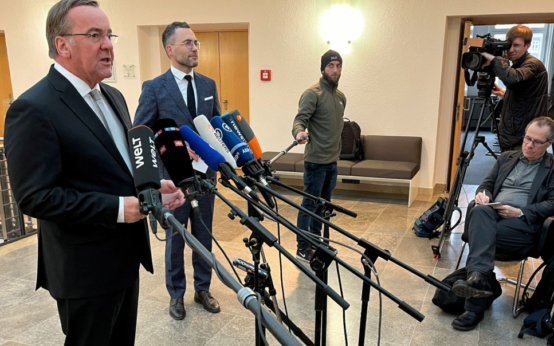German court has convicted a Moroccan citizen on charges of spying on members of the Moroccan Rif independence movement living in Germany. The ruling marks a significant development in the ongoing debate over foreign surveillance operations in Europe, raising concerns about privacy, diaspora security, and the extent of international intelligence activities on European soil.
German Court Ruling on Moroccan Spy Case
The Higher Regional Court in Düsseldorf announced the conviction after months of investigation and hearings. Prosecutors argued that the defendant collected information on Moroccan nationals who were part of the Rif movement and reported back to Moroccan intelligence services. The defendant allegedly tracked their political activities, community gatherings, and online expressions of dissent against Moroccan authorities.

The court concluded that such espionage violated Germany’s sovereignty and the fundamental rights of those targeted. The ruling underscores Germany’s commitment to protecting political exiles, activists, and dissidents who seek safety within its borders.
Background on Morocco’s Rif Independence Movement
The Rif movement has long been a point of tension between Moroccan authorities and communities from the northern Rif region. The area, historically marginalized, has experienced waves of protests demanding economic development, jobs, and improved social services. These protests grew particularly strong during 2016–2017 under the leadership of activist Nasser Zefzafi, whose arrest fueled further discontent.

For many supporters living abroad, including those in Germany, supporting the Rif cause has become both a political and cultural identity. The Moroccan government, however, has often accused the movement of undermining national unity, prompting increased surveillance of its supporters worldwide.
Germany’s Concern Over Foreign Espionage
The case sheds light on the broader issue of foreign espionage within Europe. German authorities have repeatedly warned about attempts by foreign governments to monitor political dissidents, migrant communities, and opposition groups. This case, involving Morocco, echoes earlier instances where Russian, Iranian, and Turkish intelligence operatives were accused of spying on activists in Germany.
Officials in Berlin emphasized that Germany would not tolerate surveillance operations targeting individuals who legally reside in the country. Such activities not only breach domestic law but also threaten social cohesion and Germany’s role as a safe haven for political refugees.
Impact on Moroccan-German Relations
The conviction could cast a shadow on bilateral ties between Morocco and Germany, which have experienced fluctuations in recent years. While both countries cooperate on issues such as trade, migration, and climate policy, political trust has occasionally been strained.
Morocco has faced international criticism for its handling of dissent and freedom of expression. Germany, on the other hand, has positioned itself as a defender of human rights, particularly for exiled activists. Observers suggest the case may renew tensions, especially if Moroccan authorities are perceived as continuing covert operations in Europe.
Protecting Diaspora Communities and Human Rights
Human rights organizations welcomed the court’s decision, calling it a step forward in protecting the rights of political activists abroad. Amnesty International and local diaspora groups have long argued that exiled dissidents face intimidation, threats, and monitoring by foreign governments.
By delivering a guilty verdict, German courts have reinforced the principle that freedom of expression and political activism are protected under German law, regardless of a person’s nationality. The ruling sends a clear message that Germany intends to safeguard those who seek refuge from political persecution.


 For the first time, Morocco reaches eighth place in FIFA rankings
For the first time, Morocco reaches eighth place in FIFA rankings  Morocco shines at Berlin Green Week centennial with strong delegation
Morocco shines at Berlin Green Week centennial with strong delegation  World Bank Sees Agricultural Recovery in Morocco After Favorable Rains
World Bank Sees Agricultural Recovery in Morocco After Favorable Rains  Morocco phosphate and renewables push is pitched as a new food security lever for Africa
Morocco phosphate and renewables push is pitched as a new food security lever for Africa  Morocco Reaches 380,000 Active Companies Amid Rising Closures in Young Firms
Morocco Reaches 380,000 Active Companies Amid Rising Closures in Young Firms  German Defence Minister Boris Pistorius ‘Deeply Disturbed’ by Alleged Misconduct in Elite Paratrooper Unit
German Defence Minister Boris Pistorius ‘Deeply Disturbed’ by Alleged Misconduct in Elite Paratrooper Unit